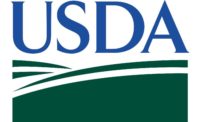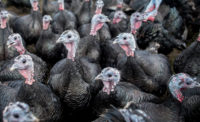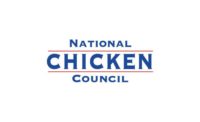The U.S. Department of Agriculture is announcing a final rule under the Packers and Stockyards Act that would have a devastating financial impact on the U.S. chicken industry by raising costs and administrative burdens, opening the floodgates for frivolous litigation and ultimately destabilizing a successful compensation system for farmers.
“Make no mistake, this isn’t about transparency,” said NCC President Mike Brown. “This rule was specifically designed to chum the water for lawsuits. It is just the first salvo in the administration’s attempts to resurrect failed policies that would dismantle a successful industry structure that has benefited farmers, chicken companies and ultimately consumers all around the world.
“This is the latest example of Bidenomics pushing increased regulations, red tape and costs onto businesses causing record inflation and input costs, and threatening food security and potentially raising grocery bills even further for Americans.”
NCC raised several specific concerns with the rule:
- It appears the industry could have to retroactively amend 25,000 contracts in two months over three major federal holidays.
- AMS has failed to consider the risks of frivolous litigation, industry-wide efficiency losses, costs to farmers and consumers from new regulatory burdens, and the effects on inflation. AMS has underestimated the hourly rates, number of people involved, and time required of executives, compliance officers, regulatory consultants, attorneys and other services required to implement the rule. With supply chain disruptions, loose fiscal/monetary policy, labor shortages, rising feed costs, lingering effects of the pandemic, and geopolitical events all placing immense cost pressures on the supply chain, AMS is injecting even more costs that can hurt everyone who touches chicken—growers, companies and consumers.
- The requirement that contracts specify minimum annual placements and minimum stocking densities goes well beyond mere disclosure, imposes terms on private contracts and would wrongfully impede the ability to adjust to market dynamics, including pandemics, natural disasters and weather events.
- The scope of the disclosures required are not limited to information that would actually affect grower compensation expectations. All information that is unrelated to compensation or that is publicly available still has to be disclosed. Several of the proposed disclosures are unhelpful and introduce unnecessary complexity into an already highly regulated process.
- The governance framework and certification in its entirety is a costly measure that does not provide useful information and does not address a real concern.
- It includes forward-looking projections that should be omitted, as they by definition cannot be accurate and risk causing significant confusion.
Background
All chicken farmers are provided the same quality of chicks, the same feed, and access to veterinary care. Farmers who invest in more advanced facilities, as well as use the best management practices will likely produce higher quality chickens more efficiently. Farmers receive a base pay per their contract and potentially a bonus, based on the health and quantity of the flock.
Raising chickens under contract is one of the best and most reliable sources of cash flow that helps keep families on the farm. The contract provides farmers with guaranteed income and insulation from market risks, such as feed costs, floods and droughts. That is why there are thousands of people right now on waiting lists wanting to apply for a contract to raise chickens.
Source: National Chicken Council




Report Abusive Comment